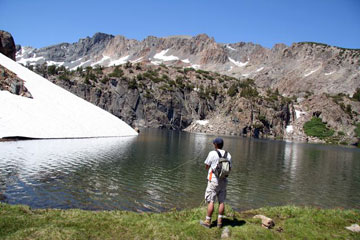Water forecasts in Western U.S. have not improved in 40 years
Water forecasts in Western U.S. have not improved in 40 years
mongabay.com
February 16, 2007
Water supply predictions for the western United States are no better now than they were in the 1960s — something that should be of particular concern as the effects of climate change become increasingly apparent — say researchers from the University of Washington (UW).
Speaking at the American Association for the Advancement of Science annual meeting in San Francisco Friday, Dennis Lettenmaier, professor of civil and environmental engineering at the University of Washington discuss the importance of science in water management in the western U.S.
“If you know how much snow is on the ground in the spring, you have a pretty good idea of how much runoff will occur during the spring and summer,” Lettenmaier said. “That’s something that’s been used for a long time. The question is: can we do better than that?”

|
Lettenmaier will explain UW’s use of satellite measurements to track snow extent and produce forecasts of stream flow for up to a year in advance.
Lettenmaier will further note the impending impact of climate change.
“Water managers are beginning to feel a crunch related to climate change,” stated a release from UW. “Springtime melt now starts some 20 days earlier than a half-century ago, which is “pretty unequivocally” seen as a signature of climate change… The shift results in a bigger gap between when the fresh water flows down from the mountains and when it actually is most needed in the height of summer. Climate change constitutes an additional challenge, on top of factors such as population movement, agriculture changes and water use changes, that managers must contend with.”
Such information could help water managers better plan reservoirs and warn farmers about impending droughts or floods said Lettenmaier.
The West-Wide Seasonal Hydrologic Forecast System is described at http://www.hydro.washington.edu/forecast/westwide
This article is based on a news release from the University of Washington.














